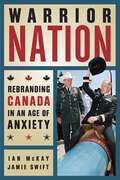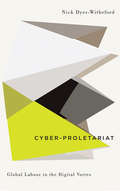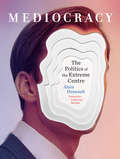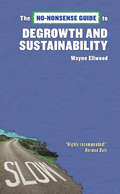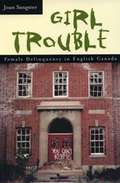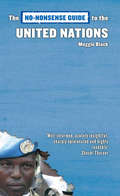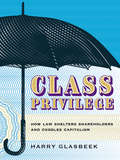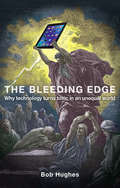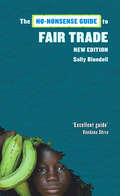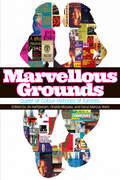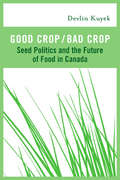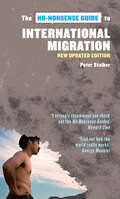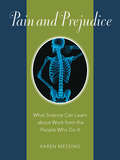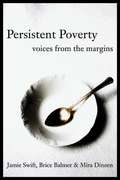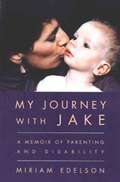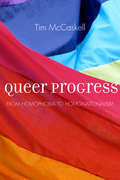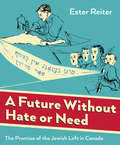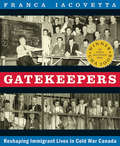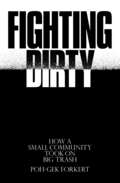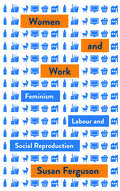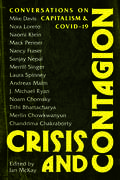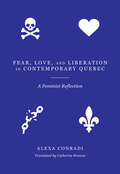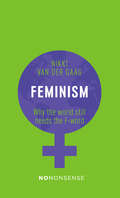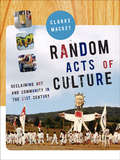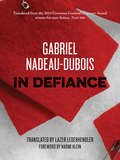- Table View
- List View
Warrior Nation: Rebranding Canada in an Age of Anxiety
by Ian McKay Jamie SwiftOnce known for peacekeeping, Canada is becoming a militarized nation whose apostles—-the New Warriors-—are fighting to shift public opinion. New Warrior zealots seek to transform postwar Canada’s central myth-symbols. Peaceable kingdom. Just society. Multicultural tolerance. Reasoned public debate. Their replacements? A warrior nation. Authoritarian leadership. Permanent political polarization. The tales cast a vivid light on a story that is crucial to Canada’s future; yet they are also compelling history. Swashbuckling marauder William Stairs, the Royal Military College graduate who helped make the Congo safe for European pillage. Vimy Ridge veteran and Second World War general Tommy Burns, leader of the UN’s first big peacekeeping operation, a soldier who would come to call imperialism the monster of the age. Governor General John Buchan, a concentration camp developer and race theorist who is exalted in the Harper government’s new Citizenship Guide. And that uniquely Canadian paradox, Lester Pearson. Warrior Nation is an essential read for those concerned by the relentless effort to conscript Canadian history.
Cyber-Proletariat: Global Labour in the Digital Vortex
by Nick Dyer-WithefordThe utopian promise of the internet, much talked about even a few years ago, has given way to brutal realities: coltan mines in the Congo, electronics factories in China, devastated neighborhoods in Detroit. Cyber-Proletariat shows us the dark-side of the information revolution through an unsparing analysis of class power and computerization. Dyer-Witheford investigates how technology facilitates growing polarization between wealthy elites and precarious workers. He reveals the class domination behind everything from expanding online surveillance to intensifying robotization. At the same time, he looks at possibilities for information technology within radical movements.
Mediocracy: The Politics of the Extreme Centre
by Alain DeneaultThere was no Reichstag fire. No storming of the Bastille. No mutiny on the Aurora. Instead, the mediocre have seized power without firing a single shot. They rose to power on the tide of an economy where workers produce assembly-line meals without knowing how to cook at home, give customers instructions over the phone that they themselves don’t understand, or sell books and newspapers that they never read. Canadian intellectual juggernaut Alain Deneault has taken on all kinds of evildoers: mining companies, tax-dodgers, and corporate criminals. Now he takes on the most menacing threat of all: the mediocre.
No-Nonsense Guide to Degrowth and Sustainability
by Wayne EllwoodThe world’s addiction to economic growth continues with barely any recognition that this is a problem. Indeed, in a Western world currently dominated by austerity measures and ducking in and out of recession, growth is seen even by progressives as the only possible solution for our economic and social woes. This No-Nonsense Guide looks deeper into the idea of economic growth–to trace its history and understand why it has become so unchallengeable and powerful. And then it goes beyond that to present the alternative–how we can kick our dirty habit, how degrowth can be turned into a positive and how we can arrive at a new levels of environmental sustainability without having to turn the clock back to the Dark Ages.
Girl Trouble: Female Delinquency in English Canada
by Joan SangsterRarely a week goes by when juvenile delinquency or the Young Offenders Act are not discussed in the dominant media. Are we witnessing a moral panic over youth crime or a spate of “child-blaming” driven by the politics of law and order? Sangster traces the history of young women and crime and in so doing punctures dozens of myths surrounding these issues. Girl Trouble uncovers the voices of girls and their families who are caught up in the juvenile justice system, and provides a critical look at the definitions of, and solutions to, female delinquency. The book fills a significant gap in Canadian social and legal history.
No-Nonsense Guide to the United Nations (No-Nonsense Guides #24)
by Maggie BlackIn the first book to distill the entire history of the United Nations into one accessible volume, Maggie Black explains how this complex organization works. In doing so, she explores its successes, failings, and limitations. This No-Nonsense Guide addresses the U.N.’s creation and early history, how it is structured, and whether it can effectively fulfill its mandate. The author considers possibilities for reform to make it more democratic and efficient.
Class Privilege: How Law Shelters Shareholders and Coddles Capitalism
by Harry GlasbeekCapitalism’s agenda is the endless pursuit of private accumulation of socially produced wealth. In our system, the corporation—created by law—is meant to hide this agenda, to distract us so that flesh and blood capitalists can do what they like. But when the workings of the corporation are examined, they reveal a betrayal of the very values and norms that, for their legitimacy’s sake, capitalists in our parts of the world purport to share. Harry Glasbeek highlights one of capitalism’s weak spots–the perverting economic, political, and ethical roles played by the prime instrument of private wealth accumulation: the legal corporation. Once the corporate mask is ripped off, those who hide behind it become visible. Stripped of their protective garb, the capitalist class will be just as naked as the rest of us are when we face their corporations.
The Bleeding Edge: Why Technology Turns Toxic in an Unequal World
by Bob HughesIt’s hammered into us from birth that ‘all good things come at a price’. Today, that price looks apocalyptic, with wars, exploitation and environmental collapse in every part of the globe. Some suggest that the carnage is “a price worth paying” for technological progress. No pain, no gain. But technology is precisely the business of minimising the costs and impacts of existence… and by whole orders of magnitude. By now, all human beings should be leading creative, leisure-filled lives in a pristine world of burgeoning diversity. So how did it go so wrong? In a word, inequality. In The Bleeding Edge, Bob Hughes argues that unequal societies are incapable of using new technologies well. Wherever elites exist, self-preservation decrees that they must take control of new technologies to protect and entrench their status, rather than satisfy people’s needs. Hughes pursues the latest discoveries about the effects of social inequality on human health, into the field of human environmental impact, and traces today’s ecological crisis back to the rise of the world’s first elites, 5,000 years ago. He argues that new technologies have never emerged from elites or from the clash of competitive forces, but from largely voluntary, egalitarian collaborations of the kind that produced the world’s first working computers. Finally, Hughes shows that an egalitarian world is not ‘pie in the sky' but our evolutionary homeland, the glue that holds societies together, and the “cradle of invention” from which all our best ideas emerge. The book concludes: ‘Let’s assume that the commitment to human equality that’s written into the Universal Declaration of Human Rights means exactly what it says, and take it from there.’
No-Nonsense Guide to Fair Trade (No-Nonsense Guides #7)
by Sally BlundellAn in-depth look at two decades of a movement that aims to challenge the ethical foundations of the global market. Transnational corporations look for the cheapest suppliers, while the fair trade movement insists on a premium for the producers at the start of the chain. Sally Blundell explores the origins of fair trade and what it is likely to become in the face of growing disparities between the principles and the practice.
Marvellous Grounds: Queer of Colour Histories of Toronto
by Jin Haritaworn, Ghaida Moussa, and Syrus Marcus WareToronto has long been a place that people of colour move to in order to join queer of colour communities. Yet the city’s rich history of activism by queer and trans people who are Black, Indigenous, or of colour (QTBIPOC) remains largely unwritten and unarchived. While QTBIPOC have a long and visible presence in the city, they always appear as newcomers in queer urban maps and archives in which white queers appear as the only historical subjects imaginable. The first collection of its kind to feature the art, activism, and writings of QTBIPOC in Toronto, Marvellous Grounds tells the stories that have shaped Toronto’s landscape but are frequently forgotten or erased. Responding to an unmistakable desire in QTBIPOC communities for history and lineage, this rich volume allows us to imagine new ancestors and new futures.
Good Crop / Bad Crop: Seed Politics and the Future of Food in Canada
by Devlin KuyekIN RECENT YEARS Canadians have become more and more concerned about the origins oftheir food and the environmental impacts of pesticides in agriculture. What is less well knownis that pesticide corporations such as Monsanto and Du Pont have bought their way into the seed industry and are taking control of what was once the exclusive domain of farmers.In Good Crop / Bad Crop, Devlin Kuyek deftly examines the economic and environmental background of the modern seed trade from a Canadian perspective. Historically seeds were viewed more as public goods than as commodities, and plant breeding objectives were widely shared by scientists, governments, and farmers. Now that approach is changing; seeds have become increasingly commodified, and plant breeding has become subject to corporate priorities. Farmers and citizens in Canada, Kuyek points out, need to heed the hard-won lessons from the developing world, where farmers greatly damaged by the much-heralded approaches of theGreen Revolution are now taking steps to reclaim control over seed supplies, food security, and their futures.
No-Nonsense Guide to International Migration (No-Nonsense Guides #18)
by Peter StalkerVirtually any commodity can move around the world to satisfy demand, but human beings have far less freedom. Many would-be migrants are forced to risk life and limb traveling illegally. Yet most rich countries are short of workers, have shrinking populations, and need more immigrants. The No-Nonsense Guide to International Migration is a timely primer to a major issue that is never far from the headlines.
Pain and Prejudice: What Science Can Learn About Work From The People Who Do It
by Dr Karen MessingIn 1978, when workers at a nearby phosphate refinery learned that the ore they processed was contaminated with radioactive dust, Karen Messing, then a new professor of molecular genetics, was called in to help. Unsure of what to do with her discovery that exposure to the radiation was harming the workers and their families, Messing contacted senior colleagues but they wouldn’t help. Neither the refinery company nor the scientific community was interested in the scary results of her chromosome studies. Over the next decades Messing encountered many more cases of workers around the world—factory workers, cleaners, checkout clerks, bank tellers, food servers, nurses, teachers—suffering and in pain without any help from the very scientists and occupational health experts whose work was supposed to make their lives easier. Arguing that rules for scientific practice can make it hard to see what really makes workers sick, in Pain and Prejudice Messing tells the story of how she went from looking at test tubes to listening to workers.
Persistent Poverty: Voices From the Margins
by Brice Balmer Mira Dineen Jamie SwiftIt’s a very short trip from the limousine seat to the curb. Jim Mann never missed a payroll for the dozen men who worked for his flourishing landscaping business he built from the ground up. Now he lives hand-to-mouth. His pockets are empty long before his next social assistance cheque arrives. In early 2010 over two hundred civic and faith leaders fanned out into thirty Ontario communities. Their goal? To explore how the least fortunate people in one of the world’s richest places are faring. The Interfaith Social Assistance Reform Coalition’s latest social audit exposed a tattered social assistance system run by volunteers desperately struggling to fill the gaps. There can be no papering over the savage inequalities and suffering exposed in this compelling look at life from the margins.
My Journey with Jake: A Memoir of Parenting and Disability
by Miriam EdelsonJake is celebrating his tenth birthday. That’s a remarkable feat, because at birth he was given only three years to live. Miriam Edelson is his mother, a dedicated fighter for Jake and families in similar situations. Edelson poses some tough questions: How do parents cope with a child who has special needs? Are we failing, as a society, to care for children with disabilities? Whatever happened to the federal government’s promise of a “Children’s Agenda”? My Journey with Jake works on two levels. It’s a poignant memoir by a devoted mother, and a hard-hitting, well-researched look at health care for Canada’s children.
Queer Progress: From Homophobia to Homonationalism
by Tim McCaskellHow did a social movement evolve from a small group of young radicals to the incorporation of LGBTQ communities into full citizenship on the model of Canadian multiculturalism? Tim McCaskell contextualizes his work in gay, queer, and AIDS activism in Toronto from 1974 to 2014 within the shift from the Keynesian welfare state of the 1970s to the neoliberal economy of the new millennium. A shift that saw sexuality —once tightly regulated by conservative institutions—become an economic driver of late capitalism, and sexual minorities celebrated as a niche market. But even as it promoted legal equality, this shift increased disparity and social inequality. Today, the glue of sexual identity strains to hold together a community ever more fractured along lines of class, race, ethnicity, and gender; the celebration of LGBTQ inclusion pinkwashes injustice at home and abroad. Queer Progress tries to make sense of this transformation by narrating the complexities and contradictions of forty years of queer politics in Canada’s largest city.
A Future Without Hate or Need: The Promise of the Jewish Left in Canada
by Ester ReiterDriven from their homes in Russia, Poland, and Romania by pogroms and poverty, many Jews who came to Canada in the wave of immigration after the 1905 Russian revolution were committed radicals. A Future Without Hate or Need brings to life the rich and multi-layered lives of a dissident political community, their shared experiences and community-building cultural projects, as they attempted to weave together their ethnic particularity—their identity as Jews—with their internationalist class politics.
Gatekeepers: Reshaping Immigrant Lives in Cold War Canada
by Franca IacovettaAn in-depth study of European immigrants to Canada during the Cold War, Gatekeepers explores the interactions among these immigrants and the “gatekeepers”–mostly middle-class individuals and institutions whose definitions of citizenship significantly shaped the immigrant experience. Iacovetta’s deft discussion examines how dominant bourgeois gender and Cold War ideologies of the day shaped attitudes towards new Canadians. She shows how the newcomers themselves were significant actors who influenced Canadian culture and society, even as their own behaviour was being modified. Generously illustrated, Gatekeepers explores a side of Cold War history that has been left largely untapped. It offers a long overdue Canadian perspective on one of the defining eras of the last century.
Fighting Dirty: How a Small Community Took on Big Trash
by Poh-Gek ForkertFighting Dirty tells the story of how one small group of farmers, small-town residents, and Indigenous people fought the world’s largest waste disposal company to stop them from expanding a local dumpsite into a massive landfill. As one of the experts brought in to assess the impact the toxic waste would have on the community, Poh-Gek Forkert was part of the adventures and misadventures of their decades-long fight.
Women and Work: Feminism, Labour, and Social Reproduction
by Susan FergusonWith #metoo dominating headlines and an unprecedented number of women running for office, the fight for women’s equality has perhaps never been higher on the political agenda. Around the world, women are fighting against unfair working conditions, restrictive abortion laws, and the frayed social safety net. The same holds true within the business world—but there’s a twist: even as some women argue that pushing for more female CEOs would help the struggle for equality, other activists argue that CEOs themselves are part of the problem, regardless of gender. In Feminist Thinking about Work, Susan Ferguson explores the history of feminist discourse, examining the ways in which feminists have conceptualized women’s work and placed labor, and its reproduction, at the heart of their program for emancipation. Engaging with feminist critiques of work, Ferguson argues that women’s emancipation depends upon a reorganization and radical reimagining of all labor, and advocates for an inclusive politics that reconceptualizes women’s work and work in general.
Crisis and Contagion: Conversations on Capitalism and Covid-19
by Ian McKayCrisis and Contagion is a selection of fourteen interviews conducted by Ian McKay of the Wilson Institute at McMaster University. Interviews with Nancy Fraser, Mike Davis, Mack Penner, Andreas Malm, and Merrill Singer explore capitalism’s organic crisis and the ways it has made this and future pandemics inevitable. Nora Loreto, Tithi Bhattacharya, Chandrima Chakraborty, Merlin Chowkwanyun, and Sanjay Nepal discuss the experiences of ordinary people in the pandemic. J. Michael Ryan, Laura Spinney, Naomi Klein, and Noam Chomsky explore the long-term effects and likely historical legacy of a pandemic that has changed millions of lives–and, maybe, the trajectory of human civilization. These scholars propose that to understand the impact of Covid-19, we have to understand the conflictual history of capitalism–and to ward off future pandemics, we need to start building a post-capitalist alternative to the disease-generating and highly unequal global neoliberal order. As capitalist forces work to shove what we have learned from the Covid-19 pandemic down the memory hole, Crisis and Contagion offers a must-read for those wanting to seize this moment of change and revolution.
Fear, Love, and Liberation in Contemporary Québec: A Feminist Reflection
by Alexa ConradiIn response to rapid and unsettling social, economic, and climate changes, fearmongering now features as a main component of public life. Right-wing nationalist populism has become a hallmark of politics around the world. No less so in Quebec. Alexa Conradi has made it her life’s work to understand and to generate thoughtful debate about this worrisome trend. As the first President of Québec solidaire and the president of Canada’s largest feminist organisation, the Fédération des femmes du Québec, Conradi refused to shy away from difficult issues: the Charter of Quebec Values, religion and Islam, sovereignty, rape culture and violence against women, extractive industries and the treatment of Indigenous women, austerity policy and the growing gap between rich and poor. This determination to address uncomfortable subjects has made Conradi—an anglo-Montrealer—a sometimes controversial leader. In Fear, Love, and Liberation in Contemporary Quebec, Conradi invites us to take off our rose-coloured glasses and to examine Quebec’s treatment of women with more honesty. Through her personal reflections on Quebec politics and culture, she dispels the myth that gender equality has been achieved and paves the way for a more critical understanding of what remains to be done.
NoNonsense Feminism: Why the World Still Needs the F-word (No-Nonsense Guides #2)
by Nikki van der GaagWe were supposed to be in a ‘postfeminist’ age. But recently we’ve seen a resurgence of feminist campaigning among women (and some men). There’s a new brand of feminism: young, social media savvy, militant. But there’s also a new kind of backlash, driven by so-called fundamentalists and by increasingly overt misogyny. This book takes an international perspective on the new feminist movements.
Random Acts of Culture: Reclaiming Art and Community in the 21st Century
by Clarke MackeyIn our society, cultural activity—or the arts—usually refers to the high culture of the elites and popular mass culture. Clarke Mackey argues for a third category that is as old as human society itself but seldom discussed: vernacular culture. Vernacular culture comprises all those creative, non-instrumental activities that people engage in daily, activities that provide meaning in life: conversations between friends, social gatherings and rituals, play and participatory sports, informal storytelling, musical jam sessions, cooking and gardening, homemade architecture, and street festivals. In this lively and eclectic discussion, Mackey maintains that practising and celebrating such activities at the expense of passive, consumer culture have far-reaching benefits. Mackey further examines how literacy, imperialism, industrialization and electronic technologies have produced a culture of spectatorship, apathy and powerlessness. This is a timely, considered, and provocative response to the popularity of amateur, participatory, and do-it-yourself culture available on the internet.
In Defiance
by Gabriel Nadeau-DuboisOn February 7, 2012, as students in Quebec prepared to vote to go on strike, Gabriel Nadeau-Dubois gave a rousing speech: “What you do today will be remembered. The decision you make will tell future generations who we were. And you already know what is being said today about our generation. That we are the generation of comfort and indifference, the generation of cash and iPods; that we are individualists, egotists; that we don’t care about anything, except our navels and our gadgets. Aren’t you tired of hearing this? Well, I am. Luckily, today we have a chance to prove that it’s not true, that it has never been true.” The “Maple Spring” saw more than 300,000 students across Quebec protest a tuition fee hike by striking from their classes. Nadeau-Dubois takes readers step-by-step through the strike, recounting the confrontations with journalists, ministers, judges, and police. Along the way he exposes the moral and intellectual poverty of the Quebec elite and celebrates the remarkable energy of the students who opposed the mercenary attitude of the austerity agenda. In Defiance is translated from the 2014 Governor General’s Literary Award winner for non-fiction, Tenir tête (Lux Éditeur) We acknowledge the financial support of the Government of Canada through the National Translation Program for Book Publishing, an initiative of the Roadmap for Canada’s Official Languages 2013-2018: Education, Immigration, Communities, for our translation activities.
